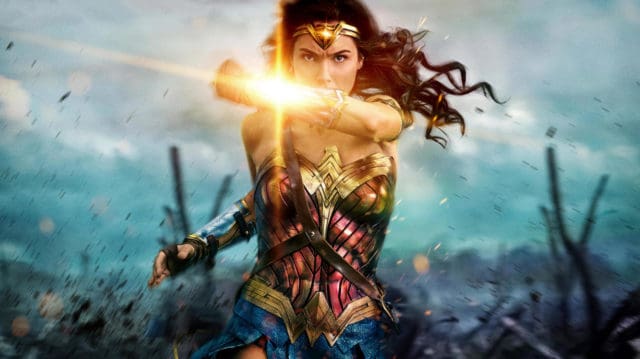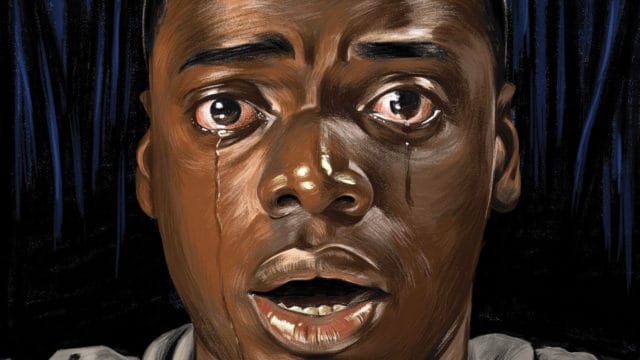
The Oscars have historically been where it’s at for the film industry: the main event where the definitive best films of the year compete in a battle royale for the industry’s top prize. And, aware of their clout in the medium, they’ve traditionally been a stodgy, stuffy bunch.
Frequently accused of being pretentious and boring, the film’s that tend to be nominated for — let alone win — Oscars typically fall into the same mold. They’re very serious, very white dramas about either social issues or prominent historical figures. They’re slow and moving, but typically lack a lot of mainstream appeal. At best, ‘popular’ movies might get a few technical nods for makeup and special effects but are forced to the sidelines when it comes to the real heavy hitters of the evening: acting, writing, directing and that most coveted award of all, Best Picture.

Although that very much remains the norm when it comes to the Oscars, that predictable pattern has been radically changing over the last several years. It first started in the wake of the public outcry over The Dark Knight failing to get a nomination for Best Picture: a movie that, in the weeks and months following the nomination announcements, many Academy voters said would have been their sixth choice for inclusion. To combat this, the Academy changed the number of nominations for the Best Picture category for the first time in decades: first by increasing it from five nominees to ten, and later allowing for a range of movies between those two extremes.
This continued with the #OscarsSoWhite controversy from a few years ago. Over the course of two years, celebrated and exceptional films about Black historical figures and non-white experiences were unilaterally ignored by the awards body, despite the litany of comparatively so-so White films and filmmakers dominating virtually every category. Embroiled in another controversy so soon, the Academy took immediate and long-overdue action. They rescinded the voting rights of Academy members who had been retired from the industry for decades while simultaneously inducting a new and far more colorful class of talented, non-white and female filmmakers into their ranks.

The result of this two-pronged approach by the Academy to combat its seemingly out-of-touch approach to cinema was that it allowed for a more broadly defined, colorful and non-traditional body of films to be seriously considered for the industry’s top awards than ever before. In any prior year, last year’s Best Picture Winner, Moonlight — a gripping portrayal of the Gay Black experience in Liberty City — would have lost to the presumed, Oscar-baity favorite, La La Land, a White-centered, 1950’s styled musical centered on the budding romance between a struggling actress and a Jazz pianist in a glossy, rose-tinted Los Angeles.
In fact, so many of last year’s nominees were colorful, out-of-the-box nominations that wouldn’t have had any serious chance of award contention in years past. Arrival was a cerebral science-fiction film about a woman saving the world from its own pointlessly self-destructive tendencies through the power of communication and understanding. Fences was a dark, gripping portrayal of abuse and betrayal in a Black, working-class Pittsburgh family. Hell or High Water was a neo-Western heist that had more in common with Logan than your run-of-the-mill Best Picture nominee. Hidden Figures was a celebration of the historically uncelebrated Black women who ensured that NASA astronauts safely landed on the moon. And Lion followed the harrowing, lifelong epic of an Indian man using Google Maps to track down his long-lost family half a world away.

From Up to Toy Story 3 to Django Unchained to Mad Max: Fury Road, recent Oscar races have been infinitely more interesting than they have been in years past both because more than just the same five, narrowly-drawn dramas are allowed to compete and because the newly revamped voting body better reflects the creative tastes of today’s movie-goers and filmmakers. And while nothing can realistically top Moonlight‘s victory over La La Land last year, the 2018 race is increasingly looking like it’s going to be dominated by a different, if related conversation. Rather than being a question of race this year, it may be a question of genre.
Even beyond the Oscars, so-called ‘genre’ films rarely get any love. If you’re not an ‘important’ drama — or occasionally a well-regarded comedy — you just can’t compete with the more Oscar-friendly fare offered up in December by award-seeking studios. Science Fiction, Fantasy, Horror and Action movies just don’t fit the mold for Oscar consideration.

Only now they do, or at least can. Oscar voters are younger, more colorful, more sexually diverse and more in line with the layman moviegoer than at any other point in its history. Yes, the movie has to be demonstrably better than safer choices just to compete on an even playing field, these last few years have shown that everything from family-friendly cartoons to R-rated action sequels to serious meditations on race and gender are on the table. And the best films of the last year aren’t the traditional offers of decades past, but down-and-dirty genre flicks and blockbusters.
Get Out has long been considered a frontrunner among the Oscar potentials. It is an intelligent meditation on the horrors of race relations in the united states, coming out in a year where the country’s explosive race relations seem to be coming to a head. Like many others on this list, it was a popular-smash hit: earning a mind-boggling $254 million on a scant $4.5 million budget — in turn making it the single most profitable film of the year. In practical terms, it was the biggest winner at the Gotham Awards that opened this year’s award season and even made a splash at the Golden Globes despite being nominated as a comedy (and, spoiler alert, Get Out is not a comedy). Between its timely subject matter, unparalleled critical praise and broadly popular mandate, it seems a surefire candidate for today’s younger, more accessible Academy voters.

One of the most obvious candidate of the bunch is probably The Shape of Water: Mexican director Guillermo del Toro’s fantastical romance between a Creature of the Black Lagoon-esque merman and a deaf mute. It lead this year’s Golden Globes with an unprecedented seven nominations, including three for acting (the Academy’s largest voting branch), Best Picture (Drama) and a win for Director (long considered the best indicator of a film’s chance at winning the Best Picture Oscar).
Another likely candidate is Wonder Woman: the one DCEU movie that people actually like. Having taken the world at large by storm, Warner Bros has been working for months to convince Oscar voters to consider it for all the major awards, and it definitely has public support behind it (especially in a year that offered little reason for the masses to actually go to a movie theater). It’s notable nomination by the Producer’s Guild for Best Picture is a powerful predictor that the industry is listening to them.

In that same, superheroic vein is Logan. This dark, neo-western deconstruction of the superhero genre is right up the Academy’s newfound sensibilities. Western and Western-esque movies have been making major waves with the Academy for the last decade, between No Country for Old Men, True Grit and Hell or High Water, they’ve become something of a mainstay among the nominees. And with similarly hard-edged action flicks also starting to gain notoriety among recent nominees — including the aforementioned Hell or High Water and Mad: Max: Fury Road — the time seems right for one of this genre’s best to finally get the prestige recognition it deserves.
The last of the potential generic nominations is none other than Blade Runner 2049. While it hardly inspired the general public to come to theaters to see it, it has certainly struck a chord among the critics, earning excellent marks from all major aggregative measures. It is a bold, visually arresting and narratively visceral film that warrants consideration in the context of Arrival‘s nomination just last year. And given that both were directed by the peerless Denis Villeneuve — who had previously earned an Oscar nomination for 2010’s Incendies, it’s as likely a bet as any.
 Follow Us
Follow Us





